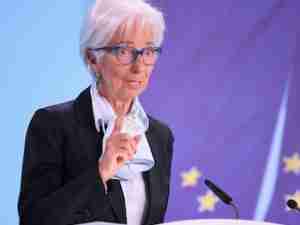Why Brexit Risks Creating a Gangsters’ Paradise as No Deal Looms
By: Dara Doyle and Rodney Edwards | Oct 16 2017 at 12:00 AM | International Trade
Noel McLaughlin is that rare thing—an Irishman who wants checkpoints on the border with the United Kingdom.
McLaughlin sells fuel in Donegal in the Republic of Ireland about 10 miles (16 kilometers) from Derry in Northern Ireland, and he reckons locals smuggling home heating oil across the border push down his sales by about 25 percent.
“We would like to see a hard border, so we could have full-time customs, excise and revenue officers cutting out smuggling,” McLaughlin, 50, said. “We want people to be stopped and asked what they have with them.”
Smuggling along the Irish border may be a microcosm of the challenges facing Britain and the European Union following Brexit. Theresa May’s government has made clear it won’t introduce strict border controls when the U.K. leaves the bloc. That will inevitably create a “gangsters’ paradise,” according to Simon Sneddon, a senior lecturer in law at Northampton University.
“If I was an organized crime gang, I would be buying light aircraft, booze, a million Marlboro and praying for a quick hard Brexit,” said Sneddon, who opposes the U.K. leaving the EU. “Brexit will tighten the grip on what can be imported legally, whilst doing nothing additional to reduce demand.”
Nowhere is this danger clearer than the 310-mile border running from near Derry in the north to Dundalk in the south, which will form the EU’s only land border with the U.K. after Brexit. An estimated 30,000 people a day cross the border, sometimes unaware that they are moving over one of the 300 crossings.
Britain is resisting new controls on the frontier, with May saying “no physical infrastructure” will be placed on the border, because it could jeopardize the region’s peace process and trade between the north and south of Ireland.
“I don’t care if a few hundredweight of beef is smuggled across the Irish border,” said Jacob Rees-Mogg , a lawmaker from May’s Conservative Party. “We have no obligation to put any border up. Full stop. Challenge the EU to do it. I just don’t believe that they will, and I don’t believe that the Irish will agree to them doing it.”
And at other entry points too, such as the port of Dover, the government last week signaled it’s prepared to rely mostly on self-assessment for customs controls, even in the event of crashing out of the EU without a deal.
Border controls in Ireland largely melted away in the 1990s as both economies joined the single market and a peace agreement brought an end to the sectarian violence that had dogged the region since the early 1970s.
Gone are the British Army check points, the concrete barriers blocking the roads and the customs posts where officials monitored smugglers. Illicit trade in alcohol, tobacco and fuel has lived on, though, to avoid different tax rates on either side of the border.
Oil smuggling rose after the Irish government introduced a carbon tax in 2010, said McLaughlin, because no equivalent levy exists across the border. So, locals can save about 150 euros ($177) in tax smuggling heating oil. While they are allowed buy and transport the fuel in the north, it’s supposed to be declared and taxed in the south.
‘Proper Price’
“It takes away a lot of your sales because the smugglers can take it hundreds of euro cheaper,” said McLaughlin. “We can’t compete because we have to charge the proper price.”
Brexit could heighten smuggling throughout the U.K. and EU. Should the two sides fail to reach a deal and each slaps tariffs on the other’s goods, the opportunity for smugglers grow. Without strict border controls, the risks to smugglers are lower.
And there’s little sign that Britain is ready to police its borders. Authorities at the Port of Dover, the U.K.’s main trade gateway, say there’s no detailed plan in place yet, while the head of the U.K.’s tax and customs body has called Dover’s customs checks a “major concern.”
Why Dover isn’t ready for Brexit
“This could be like the triangular slave trade of the 17th century, where ships took textiles to Africa, slaves to America and sugar back to the U.K.,” said Sneddon. “Vans will go back and forth between the EU and Britain, and they won’t return empty. Smugglers will exploit any arbitrage they find.”
